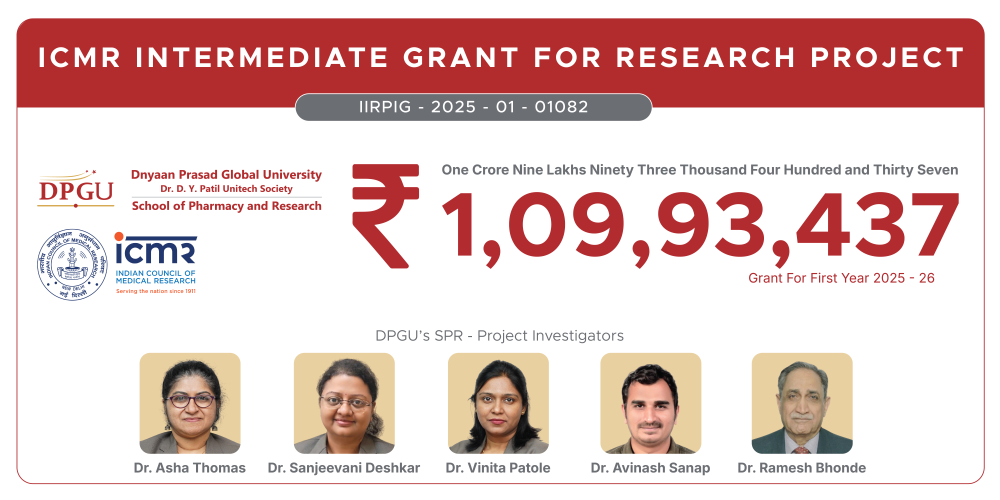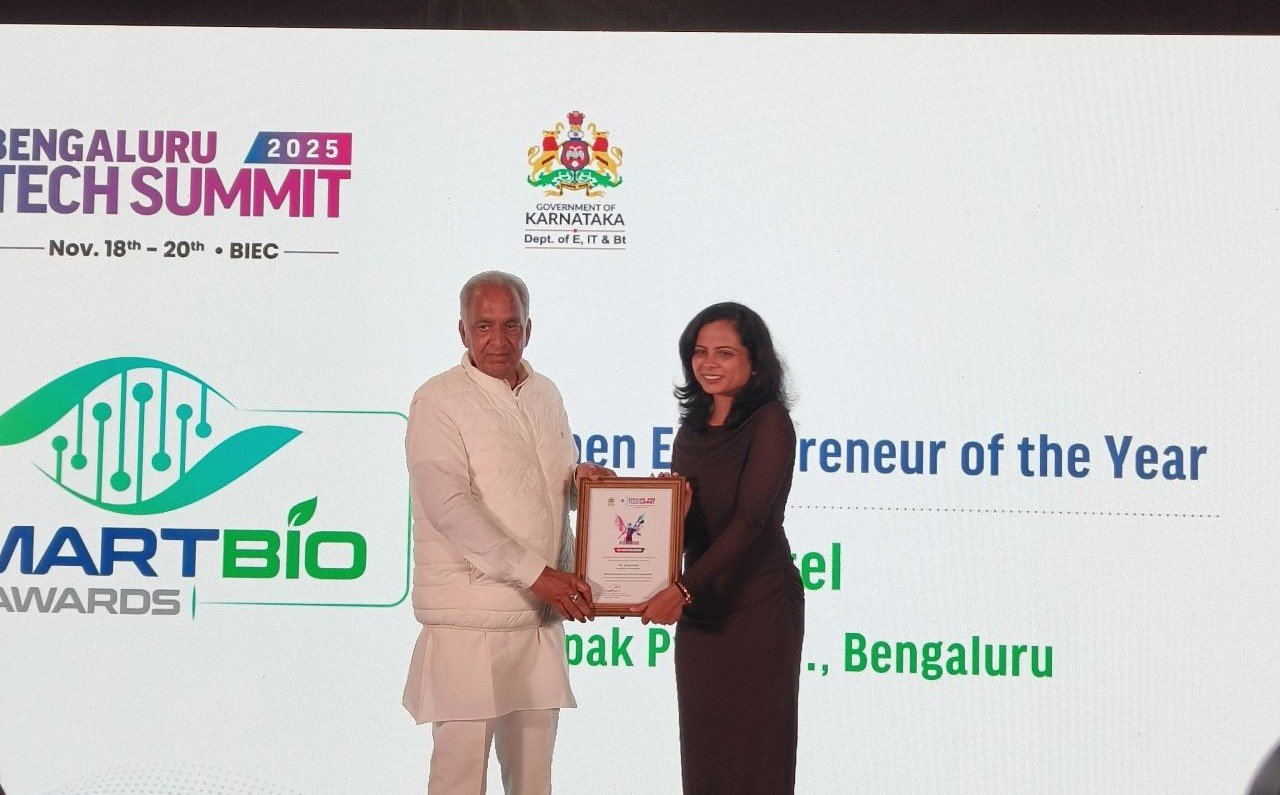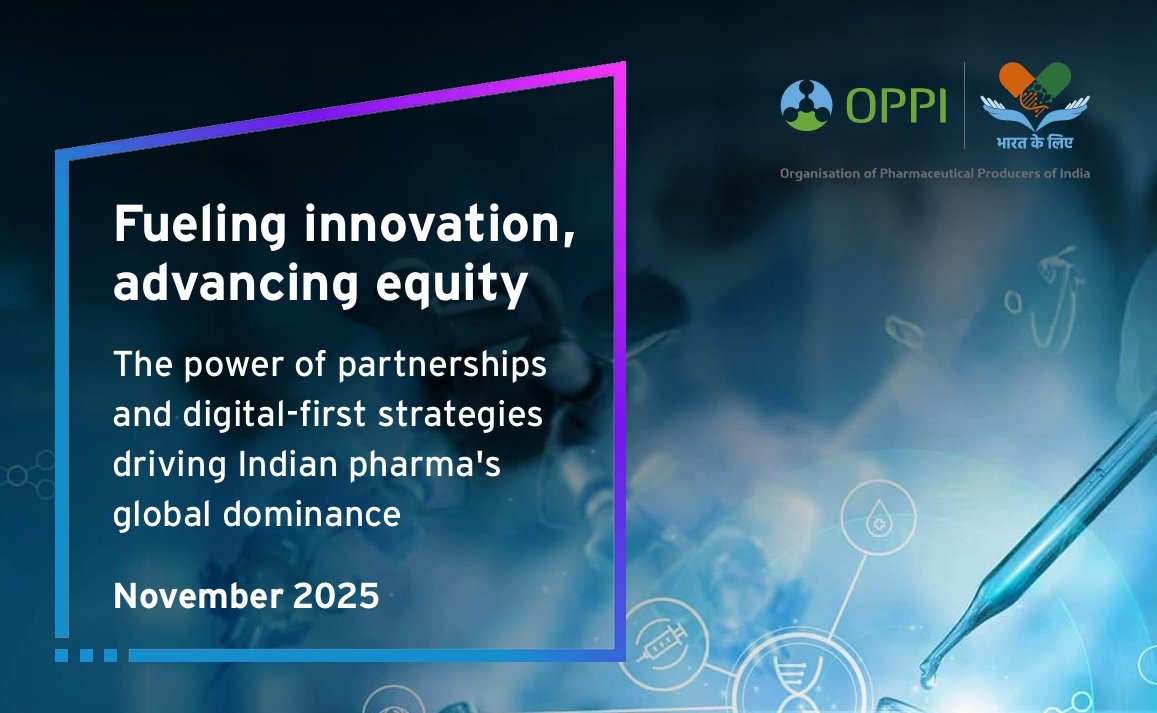Digital Tech is Unlocking the Secrets of Genomics
June 11, 2025 | Wednesday | Views | By Srinivas Iyengar, Head of Healthcare & Life Sciences Industry Group at Happiest Minds Technologies
High-speed DNA sequencers, cloud computing, and AI algorithms are transforming how we decode and interpret genetic information
When someone walks into a clinic with high blood sugar today, the diagnosis isn’t just about diet charts and finger pricks—it’s about data. Doctors are now part detectives, part data analysts, asking: is a person diabetic because of indulging in too many sweets or a glitch in the genetic code? Thanks to genomics—and the tech powering it—they can dive into a person’s DNA like it’s a digital blueprint. Think of it as running a system diagnostic on your body, where cloud computing, AI, and high-speed sequencers help decode what’s really going on under the hood. It’s like Crime Scene Investigation (CSI), but the crime scene is your genome, and the clues are in your code.
Precision Medicine
Genomics lets doctors peek under the hood—well, under the skin—to see if someone’s pancreas is slacking off because of inherited mutations or just overwhelmed by too many midnight snacks. For instance, a person with a rare genetic form of diabetes might not need insulin at all, just a different kind of pill. Meanwhile, someone else might be genetically wired to struggle with blood sugar no matter how many salads they eat. It’s precision medicine in action—like tailoring a suit, but for your treatment plan.
Real-World Examples
And if you think genomics is just about predicting future health risks, think again. In a remarkable case, a baby with a rare genetic illness was successfully treated using gene editing—a real-life sci-fi moment where doctors didn’t just manage symptoms, they rewrote the faulty gene itself.
While diabetes isn’t quite at the gene-editing stage yet, the same genomic tools are helping doctors understand who needs insulin, who doesn’t, and who might just need a different approach altogether.
Technology in Genomics
Behind every genetic breakthrough is a tech powerhouse quietly doing the heavy lifting. Thanks to high-speed DNA sequencers, cloud computing, and AI algorithms that can sift through billions of genetic letters faster than you can say ‘deoxyribonucleic acid,’ genomics has gone from lab curiosity to clinical reality. What once took years and a Nobel Prize now takes hours and a good internet connection. It’s like giving doctors X-ray vision—except instead of bones, they’re seeing your biological blueprint.
CRISPR-Cas9
No conversation about genomics is complete without mentioning the celebrity of gene editing: CRISPR-Cas9. Think of it as molecular scissors guided by GPS—except instead of cutting paper, it snips DNA at precisely the right spot. Originally discovered in bacteria as a defense mechanism, CRISPR-Cas9 is now being used to correct genetic errors in everything from rare diseases to, potentially, diabetes. It’s not science fiction—it’s science with a scalpel, and it’s rewriting the rules of medicine.
Market Growth and Valuation
If genomics were a startup, it would be the unicorn everyone’s watching. The global genomics market is projected to soar to a whopping $95–110 billion by 2030, growing at a brisk pace of 15–18% annually. What’s fueling this genomic gold rush? A booming demand for personalized medicine, a surge in genetic testing, and biopharma companies racing to develop next-gen therapies. In short, the science is hot—and so is the market.
Industry Activity
The genomics industry isn’t just growing—it’s buzzing with activity. Global giants like Illumina, Thermo Fisher, and Roche continue to dominate sequencing and diagnostics, while nimble startups like Tempus and Deep Genomics are shaking things up with AI-powered platforms. The space is seeing a flurry of mergers, acquisitions, and partnerships, especially in AI, cloud genomics, and clinical data integration. Closer to home, technology services companies are making waves with cloud-native platforms for genomic data processing and AI models that predict disease risk and personalize treatment. With a strong focus on healthcare, compliance, and security, they’re helping hospitals and biotech firms bring genomics from the lab bench to the bedside.
Key Concerns and Considerations
The future of genomics holds immense promise, but it also brings several critical concerns. Ethical issues such as germline editing, genetic discrimination, and the need for informed consent are at the forefront. Data privacy and security are major challenges, given the uniquely identifiable nature of genomic information. Clinically, not all genetic variants are well understood, raising concerns about misinterpretation and overdiagnosis. Additionally, the high cost of sequencing and analysis may exacerbate healthcare inequalities, limiting access in underserved regions. There is also a pressing need to educate healthcare professionals and expand the workforce skilled in genomics. Finally, integrating genomic data into electronic health records remains complex due to interoperability issues and the lack of standardized data formats. Addressing these challenges is essential to ensure that genomics advances responsibly and equitably.
Conclusion
Genomics is no longer the future of medicine—it’s the present, unfolding rapidly in labs, clinics, and even our personal health apps. From decoding diabetes to designing personalized treatments, the power of our DNA is being harnessed like never before. But with great power comes great responsibility. As we unlock the secrets of the genome, we must also ensure that ethics, equity, and education keep pace. The journey ahead is as complex as the code itself, but if navigated wisely, genomics could redefine healthcare for generations to come.
Technology is the driving force behind this genomic revolution. High-speed DNA sequencers, cloud computing, and AI algorithms are transforming how we decode and interpret genetic information. These advancements enable rapid analysis and integration of genomic data into clinical workflows, making personalised medicine a reality. However, we must address critical concerns such as data privacy, security, and the need for standardised data formats to ensure responsible and equitable progress. By leveraging technology responsibly, we can unlock the full potential of genomics and pave the way for a healthier future.
Srinivas Iyengar, Head of Healthcare & Life Sciences Industry Group at Happiest Minds Technologies










